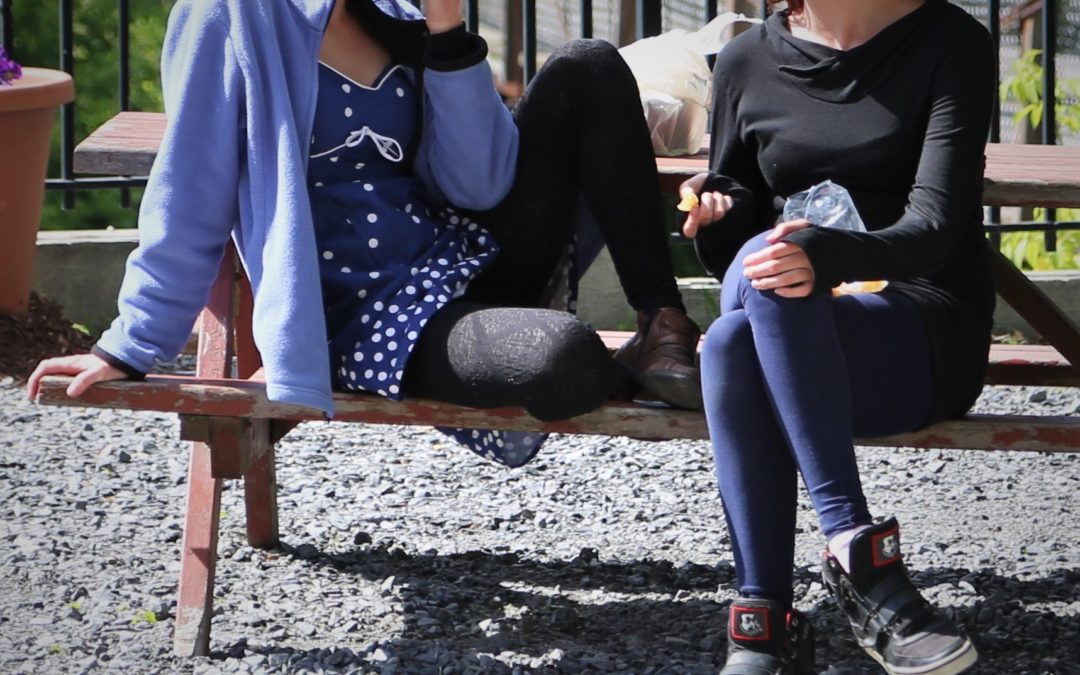It is the day of my shift as a volunteer in the oncology department of the Perugia hospital. Entering that place of pain, despair and hope is always a gamble. My job is to talk to patients – with those who wish to talk – to help them, if I can, with a smile, with a gesture. It is no easy task. When I enter a room, I often find someone welcoming me with a “what does this woman want?” look, and I of course quickly back out. Other patients more politely dismiss me with a forced smile that I am quick to grasp. But there is always someone who is willing and actually quite happy to talk with.
Today that person is Latifa, a young woman from Algiers who has been living in Italy for some time. As soon as I enter her room she welcomes me with an open, bright smile. And as we start to chat livelily, I can’t help but wonder why on such a hot day – it’s June 23rd – she should wear the veil. In the hospital… in her condition… how absurd! And with just thinking these thoughts, I put this woman at distance within me, even though I do like her very much.
Latifa is thirty-six years old and the mother of six children. She tells me about them and how she misses them on this particular day which is the last day of Ramadan, a very special day of sharing, togetherness and joy. In turn, I tell her that even in Umbria this is a special day, as it is the eve of the feast of the Nativity of St. John the Baptist, dedicated to the preparation of the Water of St. John. Women on this day go to the countryside to collect fragrant flowers and herbs which are dipped in a bowl full of pure water. During the night, the light of the moon and the morning dew extract the beneficial principles that are released in the water from the flowers and herbs. This special water is then used to refresh and purify oneself and is offered to friends and family to bestow on them luck, love and happiness.
Latifa, surprised and fascinated by this story of mine – who knows what memories or experiences or emotions it evoked in her – clutches my hand and exclaims: “But then we are sisters!” “Yes of course, Latifa, we are sisters”, I reply, deeply moved by her response, all distance between us abolished: that veil on her head disappearing before my eyes. I left the hospital that day with the feeling that a barrier had been crossed within me, wondering how such an intense, emotional experience had come to be. I surely had very little in common with this woman, coming from a world I knew nothing of and could barely imagine- yet something deep and beautiful had happened.
I had several encounters with Latifa during her stay in the hospital. Encounters full of stories we told each other, of recipes we shared, of promises to meet one day away from the hospital. Encounters full of affection, the true emotional tone of which I understood only sometime later by reading the words of C.S. Lewis:
Affection is the least discriminating type of love… It ignores the barriers of age, sex, class and education… Affection is the humblest type of love. It doesn’t show off. People can be proud of being in love, or of a friendship. Affection is modest, even secretive and shy… Affection has a very homely face. So have many of those for whom we feel it. It is no proof of our refinement or perceptiveness that we love them, nor that they love us…
The special glory of Affection is that it can unite those who most definitely, even comically, are not; people who if they had not found themselves by coincidence in the same home or community, would have nothing to do with each other.
We never got the opportunity to meet outside the hospital walls. Latifa was very ill and shortly after being dismissed from the hospital, she decided to go home to die in Algeria.
I often think of her and the gift she gave me “in her own way” and of Lewis’s words so accurate in describing what that gift was for me:
“The moment when one first says, really meaning it, that although he is not “my sort of man” he is a very good man “in his own way” is a moment of liberation. It does not feel like that; we may feel only tolerant and indulgent. But really we have crossed a frontier. This “in his own way” means that we are getting beyond our own idiosyncrasies, that we are learning to appreciate goodness or intelligence in themselves, not merely goodness or intelligence flavored and served to suit our own taste…
Affection broadens our mind. Of all natural loves it is the most catholic, the least choosy, the broadest…
Affection opens our eyes to a goodness we could not have seen or would not have appreciated without it.”
[C.S. Lewis, FOUR LOVES, 1960]
= = =
To read more from Lewis on love, see the “Lewis” page on the AGORA website at:

